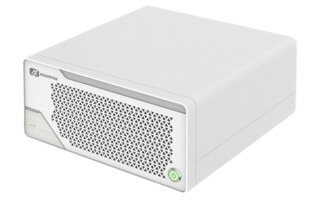Leti Develops Proof of Concept to Test Wireless Systems in Aircraft
September 20, 2017

Leti, a technology research institute of CEA Tech, announced today it has developed a methodology for testing high-speed wireless communications on airplanes that allows different system...
LETI DEVELOPS PROOF OF CONCEPT TO TEST WIRELESS SYSTEMS IN AIRCRAFT
Will Present Results of Joint Project at AeroTech Conference And Exhibition in Fort Worth, Texas, Sept. 26-28
GRENOBLE, France – Sept. 20, 2017 – Leti, a technology research institute of CEA Tech, announced today it has developed a methodology for testing high-speed wireless communications on airplanes that allows different system deployments in cabins, and assesses wireless devices before they are installed.
In a joint research project with Dassault Aviation, Leti demonstrated a channel-measurement campaign over Wi-Fi frequency in several airplanes, including Dassault’s Falcon business jet. Using a channel sounder and a spatial scanner, Leti teams determined a statistic model of the in-cabin radio channel, constructed from the antenna position and the configuration of the aircraft.
A radio-frequency channel emulator and the in-cabin channel model were used to test Wi-Fi designed for passenger communication and entertainment before installation in the aircraft. In that test, two different wireless access points and different antenna configurations for Wi-Fi networks deployed in an aircraft cabin were evaluated. Based on an extensive test campaign, mean values of performance parameters, together with the operating margin, were provided according to the device configuration, kind of traffic and channel conditions.
In addition, the technology gives aircraft designers key tools to define wireless communication systems that enhance passenger experience, without aircraft immobilization.
“This research collaboration with Dassault is a critical first step toward validating wireless connectivity systems before they are installed in aircraft,” said Lionel Rudant, Leti strategic marketing manager. “Wireless systems have multiple benefits, ranging from more efficient monitoring of aircraft comfort and safety to reducing the weight of planes.”
Leti’s roadmap also addresses goals for wireless sensor networks, which are part of an industry effort to replace the hundreds of miles of wiring required to connect thousands of sensors and other detectors located throughout aircraft to monitor safety and comfort factors. The factors range from ice detection, tire pressure and engine sensors to cabin pressure, smoke detection and temperature monitoring.
Rudant will present details of Leti’s proof of concept at the AeroTech Conference and Exhibition, Sept. 26-28 in Fort Worth, Texas. His talk, “Test of in-flight wireless connectivity with radio channel emulator”, will be on Sept. 27 at 8 a.m. in room 201B.
About Leti (France)
Leti, a technology research institute at CEA Tech, is a global leader in miniaturization technologies enabling smart, energy-efficient and secure solutions for industry. Founded in 1967, Leti pioneers micro- & nanotechnologies, tailoring differentiating applicative solutions for global companies, SMEs and startups. Leti tackles critical challenges in healthcare, energy and digital migration. From sensors to data processing and computing solutions, Leti’s multidisciplinary teams deliver solid expertise, leveraging world-class pre-industrialization facilities. With a staff of more than 1,900, a portfolio of 2,700 patents, 91,500 sq. ft. of cleanroom space and a clear IP policy, the institute is based in Grenoble, France, and has offices in Silicon Valley and Tokyo. Leti has launched 60 startups and is a member of the Carnot Institutes network. Follow us on www.leti.fr/en and @CEA_Leti.
CEA Tech is the technology research branch of the French Alternative Energies and Atomic Energy Commission (CEA), a key player in innovative R&D, defense & security, nuclear energy, technological research for industry and fundamental science. In 2015, Thomson Reuters identified CEA as the most innovative research organization in the world.
Press Contact
Agency
+33 6 74 93 23 47
[email protected]






